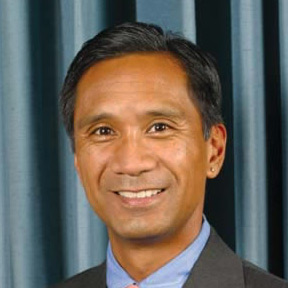During the Cold War, the focus of our foreign and defense policy was the Soviet Union and containing the spread of communism. This guiding principle led to U.S. military involvement—directly or indirectly—in areas around the world, including Korea, Vietnam, Laos, Cambodia, Nicaragua, El Salvador, Cuba, the Dominican Republic, Grenada, and Afghanistan. Ironically, our support for the Afghan rebels in their war with the USSR resulted in the training of many of those who are loyal to Osama bin Laden and the ascendancy of the Taliban government.
The United States backed the Afghan rebels because we were single-mindedly focused on the “evil empire” threat of Soviet communist expansion. As a result, we were willing to support even the most radical elements as long as they were “anti-Soviet.” We assumed—wrongly—that the result would be a “pro-American” regime in Kabul. Just as we were myopic because of our pre-occupation with the Soviet Union, there is great potential for the “terrorism card” to blur our vision.
Prior to September 11, the United States did not view Pakistan favorably because of its nuclear ambitions, its military government, and its support for the Taliban and alleged terrorist groups in Kashmir. Now, Pakistan has become a frontline ally because of its shared border with Afghanistan. And because Islamabad (Pakistan’s capital) has pledged its support in our war on terrorism, the United States has agreed to lift sanctions imposed in response to its nuclear weapons program—although there is no promise or evidence that the program will cease—and reschedule (maybe even forgive) $379 million of debt owed to the United States.
Just as America funneled millions of dollars to El Salvador and Honduras because they were considered “anti-communist,” will America continue supporting Pakistan because it professes to be “anti-terrorist”? And will the result be economic reform and a more democratic government? If history is any guide, the odds are against it.
The risks in the region are not limited to Pakistan. Uzbekistan’s President Islam Karimov has agreed to let the United States use three former Soviet air bases. Uzbekistan is also fighting an internal battle with militant Islamic forces, some of whom may be tied to bin Laden and Al Qaeda. Because Uzbekistan can now claim to be “anti-terrorist.” does that mean we will excuse its dictatorship that represses all dissent, including religious expression? And in so doing, will we be adding fuel to the fire of Islamic extremism, which already claims that the United States props up repressive and unpopular governments in the Muslim world? We would do well to remember our experience with the Shah of Iran.
And what of Russia? President Putin has given his support for U.S. military operations against Afghanistan, particularly from Central Asian states that were once part of the Soviet Union and are still regarded as within Moscow’s sphere of influence. And there are indications that the relationship between Russia and the United States may be recast based on an anti-terrorism framework. Before September 11, the United States was largely critical of Russia’s military operations in Chechnya, which was usually viewed as a civil war involving separatists. Now this same conflict is being characterized as an internal war against terrorists, including linkages to Al Qaeda. If what were once rebels are now terrorists, does that legitimize what were previously criticized as brutal military actions?
How many other countries will play the “terrorism card” to gain U.S. favor? Will we support countries and regimes because they claim to be “anti-terrorist” or can link (however tangentially) internal dissent to Al Qaeda, without regard to whether they share core American values of a free society and market economy? Will terrorism—much like communism and the USSR—become the sole focal point of U.S. foreign and military policy?
We need to avoid tunnel vision and being blindsided in our zeal to go after the terrorists responsible for the attacks on the World Trade Center and Pentagon. Focusing on one threat to the exclusion of all else and forging alliances of convenience comes with risks. History tells us that these risks should not be taken lightly. If we do not learn from history, we will be doomed to repeat the same mistakes. While we need to retaliate against the perpetrators of the September 11 terrorist attacks, we also need to ensure that our actions do not result in unintended consequences.







